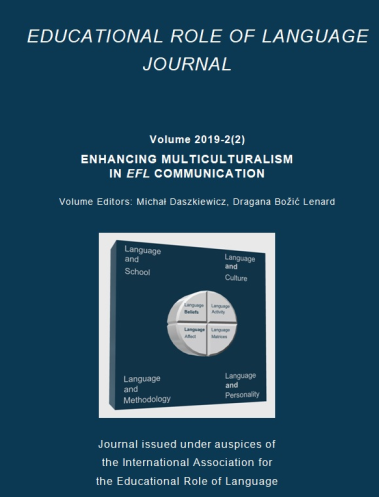Vaida Žegunienė 
Klaipeda University, Lithuania; https://orcid.org/0000-0002-6358-618X
DOI: https://doi.org/10.36534/erlj.2019.02.06
Bibliographic citation: (ISSN 2657-9774) Educational Role of Language Journal. Volume 2019-2(2). Enhancing multiculturalism in EFL communication, pp. 57-67
Abstract
The paper aims to demonstrate a new efficient and relevant trend closely related to the language learning where the main emphasis is on the development of global citizenship. Furthermore, revealing the theoretical presumptions of learning a foreign language, it will be purposefully targeted at crystallization of a notion global citizenship. After having reviewed the documents regulating education policy, it was identified that global citizenship is described as democratic and sustainable education that specifically is focused on the development of a global citizen who is able to understand the social issues, activities and processes of the contemporary society, to demonstrate a tolerant and positive approach and to adapt to the global environment. It is emphasized that global citizenship is a core of the growth of a global citizen and his/her proactive performance in the global context, which indisputably comprises various countries, cultures, values, beliefs, etc. The analysis of the documents, studies and reports revealed the theoretical presumptions that learning a foreign language is tightly related to global citizenship education that is recommended to be initiated at pre-primary school because the pre-primary school aged children are capable to form/construct new global skills (including language/communication skills). Thus, the initiation of global citizenship education and its combination with learning a foreign language might be considered as a must due to the beneficial aspects for education of the pre-primary school aged learners.
Keywords: language learning, foreign language, global citizenship education, global citizen, pre-primary education, pre-primary school aged children
Go to full Volume 2019-2(2)
Go to Educational Role of Language Journal – main page
Go to International Association for the Educational Role of Language – main page